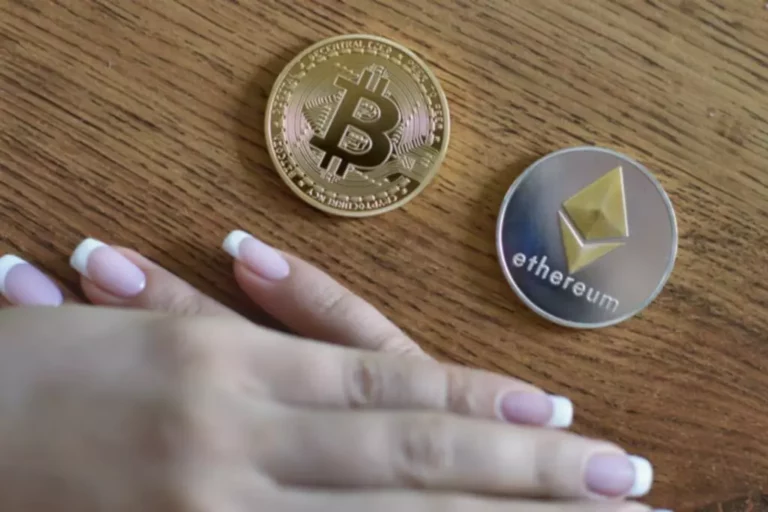15 Best Crypto & Bitcoin Wallets of January 2025
Content
- I am new to cryptocurrency and want to buy a little, dabble in trades/swaps and make the occasional payment.
- Dogecoin vs Litecoin — Comparing Two Early Bitcoin Alternatives
- I currently live on crypto or plan to live on crypto – crypto is or will be a major aspect of my financial plan.
- Benefits and Drawbacks of Crypto Exchanges
For its user-friendly and secure platform and comprehensive educational resources. See which crypto exchange is right for you and learn how to start investing in crypto today. You’ll typically need what is a crypto exchange vs wallet to install software to set up the wallet, too. You can typically purchase a hardware wallet for between $50 and $150, although there are some higher-priced options, too.
I am new to cryptocurrency and want to buy a little, dabble in trades/swaps and make the occasional payment.
It’s the shape of about 5 credit cards stacked on top of one another, while all previous Ledger wallets resembled a flash drive. Other features that make the Ledger Stax stand out from previous versions of Ledger wallets are its wireless-charging capability and its https://www.xcritical.com/ lock screen, which you can customize with an NFT. You’ll be hard-pressed to find another wallet that offers so much value at such a moderate price.
Dogecoin vs Litecoin — Comparing Two Early Bitcoin Alternatives
- Also, fees might get high if the network is busy like Ethereum network fees are around $5-$10 per transaction.
- Bear in mind that different digital currencies have different address types and you’re usually only able to send coins between like wallet addresses.
- There’s a popular expression in the crypto world, “Not your keys, not your coins.” If you don’t control your keys, you don’t have full access to your crypto assets.
- Recently, Robinhood introduced 24-hour trading for select stocks and ETFs and expanded its educational resources.
- Regarding security, Ledger is one of the most trusted companies on the market.
- That’s why using your own wallets, maintaining multiple wallet backups and keeping them secure offline is a must for anyone seriously investing in crypto.
Anything that impacts the exchange—hacks, network problems or finance issues, like when OKCoin was broken into—also impacts your funds and your ability to use them. To address this risk, centralized Proof of work crypto exchanges have beefed up security over recent years. Among other strategies, they now store most customer assets offline and take out insurance policies to cover crypto losses in the case of hacking.
I currently live on crypto or plan to live on crypto – crypto is or will be a major aspect of my financial plan.
It’s also one of the few exchanges in the U.S. to offer margin trading and a suite of other advanced trading tools like advanced order types and futures trading. Gemini is one of only a handful of providers we reviewed that’s licensed to operate in all 50 states, allowing users from anywhere in the country to legally and securely trade cryptocurrencies. And do it with a user-friendly platform with robust security measures, including hot wallet insurance and two-factor authentication.
Benefits and Drawbacks of Crypto Exchanges

It has never experienced a hack; plus it’s integrated with Ledger and Trezor. Additionally, you can also trade and stake cryptocurrency directly from your wallet with Exodus’ built-in exchange. If you’re looking for storage offline, the Exodus wallet is integrated with Trezor.
In addition, the Crypto.com App offers the highest security standards in the crypto industry. Never store private keys or wallet recovery phrases on any online platform or in digital format. Write them down on paper and keep them in a secure location, such as a safe deposit box or a fireproof safe.
SafePal ticks many boxes—it supports all major cryptocurrencies by market cap and popular stablecoins like Dai (DAI) and TrueUSD (TUSD). One major perk of this cold storage option is its integration with crypto exchange Binance. It’s also a relatively cheap hardware solution, with a device costing about $50. If you’re looking for the right place to park bitcoin, Ethereum and USD Coin (USDC) under one roof, the Crypto.com DeFi Wallet might be the wallet for you.
If you prioritize convenience and ease of use, an exchange may be a better choice as it offers a user-friendly interface and customer support. If you’re willing to trade off some convenience for higher security and control, a crypto wallet may be a better option. Are you planning to hold your cryptocurrency for the long term, or are you an active trader? If you’re a long-term holder, a crypto wallet may be a better option as it offers higher security and control over your funds.

A hot crypto wallet is constantly connected to the internet, which may leave it vulnerable to hackers but has the benefit of facilitating faster trades. Conversely, a crypto “cold wallet” remains offline and much more secure against hacking, but transferring funds into and out of cold storage takes more time and effort. Since most exchange wallets are hot and custodial, it’s vital that you trust the exchange you use to store your crypto.
Its easy-to-use interface makes it a popular choice for beginners and pros alike. And at a price point of US$79, the Nano S Plus costs US$70 less than the Nano X at US$149. When you consider that the only key difference between the X and S Plus is Bluetooth connectivity and iOS support, the S Plus’s value starts to become clear.
Benzinga compared the features of the top crypto exchanges for this month to help you find the perfect fit for your crypto trading journey. It offers advanced trading features like futures trading, staking, and margin trading. Binance also has strong security features like 2FA, withdrawal address whitelisting, and SAFU insurance fund. As they are decentralized, you don’t have to make accounts or give personal info like KYC details. But DEXs can be difficult to use, especially for beginners who don’t have much knowledge about crypto. Also, fees might get high if the network is busy like Ethereum network fees are around $5-$10 per transaction.
A crypto exchange wallet is a type of digital wallet provided by crypto exchanges. These wallets allow users to store, receive, and send crypto assets directly within the exchange’s ecosystem. They are a part of the service portfolio designed for users who trade on the exchange platform. Hardware wallets, also known as cold wallets, store your crypto offline (i.e., cold storage) on a hardware device. Most popular hardware wallets support ETH and ERC-20 token storage. In the vast landscape of cryptocurrency wallets, selecting the one that aligns with your needs is crucial.
The wallet has added features like a portfolio overview that help you to oversee your holdings. And if you’d like to top up your portfolio, you can use the wallet’s built-in exchange to swap your digital assets. Our selection of the best Bitcoin and crypto wallets uses our custom methodology and is updated by our editorial team throughout the year to reflect changes in the market.
